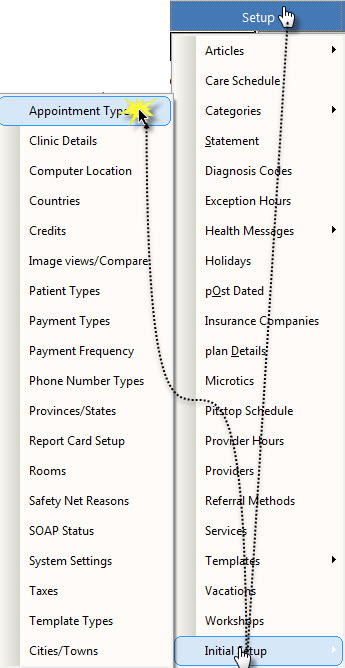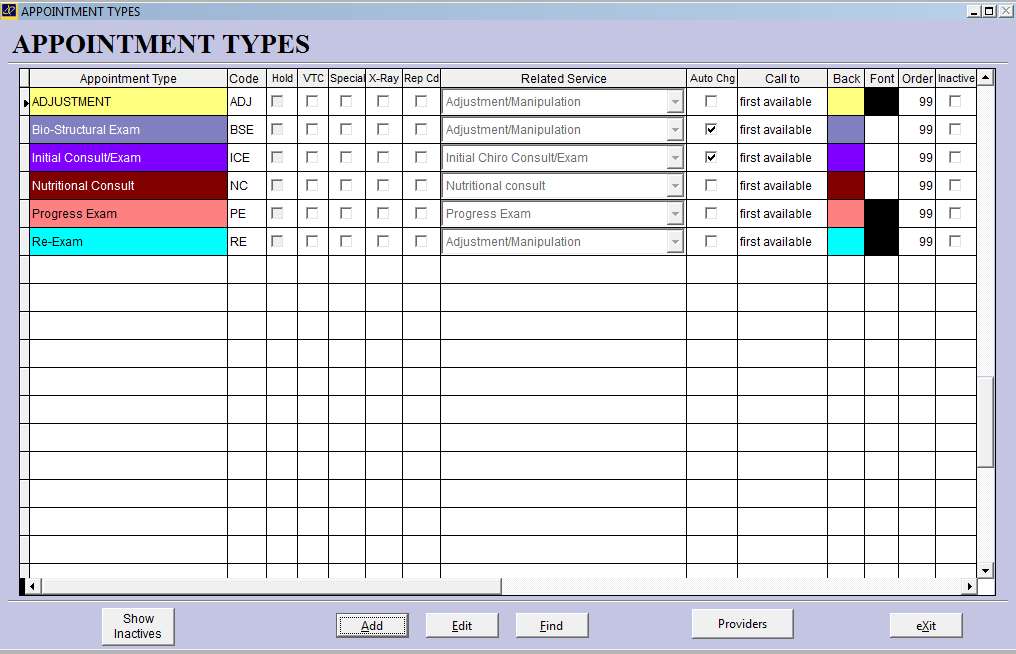|
Appointment Types are the different appointments Patients can be scheduled for. Appointments are not necessarily indicative of the Services that are charged for that visit. We recommend creating an Appointment Type for each visit a Patient may have in your clinic – including workshops, x-rays, consultations, etc. We also recommend keeping your Appointment Type list as simple as possible. Too many Appointment Types can make the process of booking confusing. Atlas uses a combination of color coding, time slots and the Appointment Ledger to help you determine Patient appointments at a quick glance. |
 |
 |
|
NOTE: when you click ADD or EDIT the menu changes to SAVE and REVERT – Save the current changes or Revert to the original data when you entered the window. After the Appointment Types are setup, be sure to click Providers and properly link the Appointment Types and set the Default Appointment Type for each Provider. |